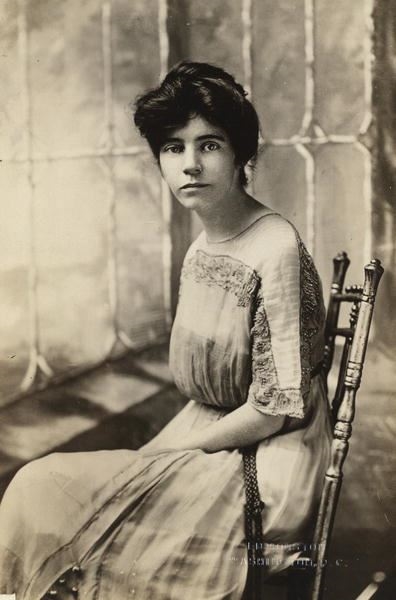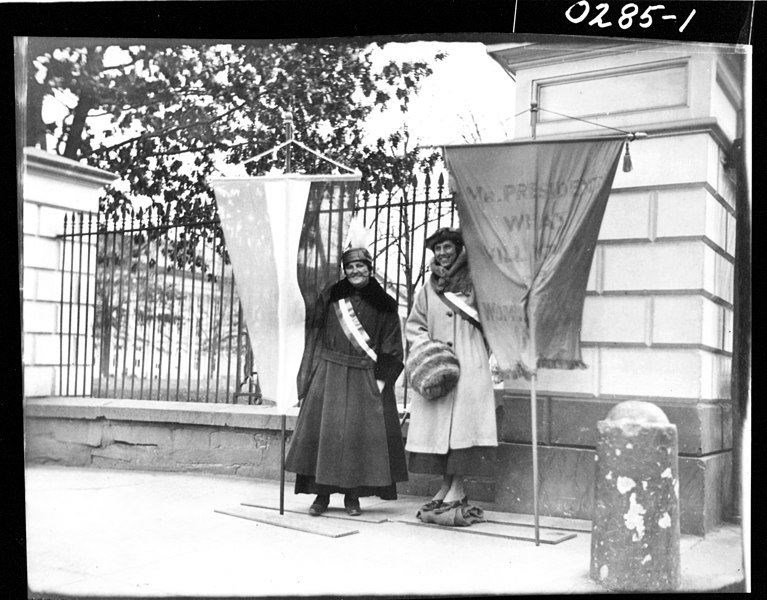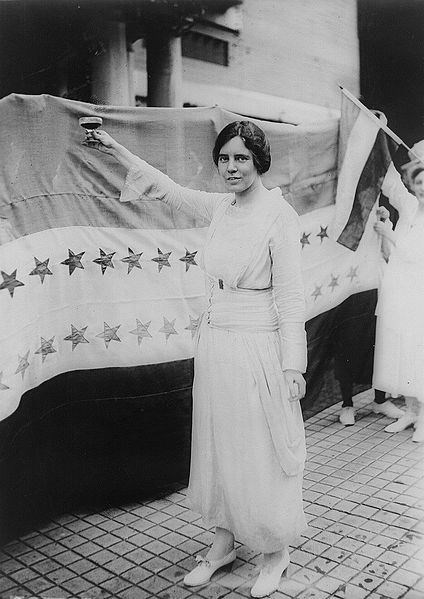“Defined broadly, ‘a hero is someone who rises above his or her fears and limitations to achieve something extraordinary ... a hero embodies what we believe is best in ourselves’” (Fleming). As explained in his article Review of Superman on the Couch: What Superheroes Really Tell Us About Ourselves and Our Society, a hero is someone who overcomes his or her fears to make a positive impact on the world, while also exemplifying how to be the best possible version of ourselves. Sometimes society superficially assigns the term hero to people because they are talented and popular, and are frequently in the spotlight. To more accurately decide who among us are true heroes, we need to ask: what makes such people worthy of our admiration? How do they exemplify the best version of themselves? Do they stand out by their selfless contribution to society? To me, a true hero is one who works for the betterment of others without the promise of fame and fortune. Common characteristics that I expect in a true hero are perseverance despite discouraging obstacles or personal challenges; and integrity, a person of sound moral character whose actions convey a strong sense of moral and ethical principles. Based on these qualities, I believe that everyday heroes abound. They are the parents that work tirelessly in demanding jobs to provide for their families, thus modeling perseverance and moral responsibility. Acts ranging from a youngster who finds a wallet and makes every effort to return it, to teachers, fire fighters, and police officers who dedicate their lives to the instruction and safety of others can be seen as heroism in action. This is not because of the magnitude of their actions, but because they exemplify the perseverance and integrity of a true hero.
 Alice Paulwkimedia commonsOne such genuine hero who exemplifies the key characteristics of perseverance and integrity was Alice Paul. Alice Paul was an activist for the women’s voter act. She enthusiastically joined the National American Woman Suffrage Association (NAWSA), and even formed the National Woman's Party (NWP), two organizations that advocated for women’s right to vote. Paul was born in Moorestown, New Jersey on January 11, 1885, to a wealthy Quaker family. She grew up in a family that was committed to social justice. Her parents instilled in her from a young age the Quaker values of discipline, service, honesty, and equality between the sexes. Throughout her adult life until her death in 1977, Paul dedicated herself to the cause of women’s suffrage. Paul was first drawn to this cause in 1907 when she witnessed Christabel Pankhurst, one of the leaders of NAWSA, prevented from addressing a university audience by a hostile crowd. That experience was the starting point in Paul’s long journey to fight for women’s rights. Alice Paul possessed two heroic qualities of perseverance and integrity. Through many setbacks, Paul persevered and maintained a dedication to her chosen cause, no matter what obstacles were in her way. Paul’s integrity gave her a moral compass to faithfully adhere to the principled of justice and equality even in times when it put her in personal danger. She braved picket lines even though she knew she would have to endure contempt and injury. Not even face to face antagonistic opposition from President Wilson, could deter Paul from her goal. Alice Paul is a hero because in her determination to fight for women’s suffrage, she never allowed harsh consequences to undermine the integrity of her commitment to extending the right of suffrage to women.
Alice Paulwkimedia commonsOne such genuine hero who exemplifies the key characteristics of perseverance and integrity was Alice Paul. Alice Paul was an activist for the women’s voter act. She enthusiastically joined the National American Woman Suffrage Association (NAWSA), and even formed the National Woman's Party (NWP), two organizations that advocated for women’s right to vote. Paul was born in Moorestown, New Jersey on January 11, 1885, to a wealthy Quaker family. She grew up in a family that was committed to social justice. Her parents instilled in her from a young age the Quaker values of discipline, service, honesty, and equality between the sexes. Throughout her adult life until her death in 1977, Paul dedicated herself to the cause of women’s suffrage. Paul was first drawn to this cause in 1907 when she witnessed Christabel Pankhurst, one of the leaders of NAWSA, prevented from addressing a university audience by a hostile crowd. That experience was the starting point in Paul’s long journey to fight for women’s rights. Alice Paul possessed two heroic qualities of perseverance and integrity. Through many setbacks, Paul persevered and maintained a dedication to her chosen cause, no matter what obstacles were in her way. Paul’s integrity gave her a moral compass to faithfully adhere to the principled of justice and equality even in times when it put her in personal danger. She braved picket lines even though she knew she would have to endure contempt and injury. Not even face to face antagonistic opposition from President Wilson, could deter Paul from her goal. Alice Paul is a hero because in her determination to fight for women’s suffrage, she never allowed harsh consequences to undermine the integrity of her commitment to extending the right of suffrage to women.
As a hero, Paul overcame daunting opposition to a cause that would make a lasting impact on society. Women had started picketing the White House for a while, but at one point people started to get annoyed and the government issued an arrest warrant for picketing. Knowing this, Alice Paul and her supporters persevered and continued to fight on:
Although she knew what lay ahead and that she, as the organizer of the picketing, would receive a harsher sentence, she insisted on taking her place on the picket line. She was arrested in October. While in jail she was forcibly fed and threatened with commitment to an insane asylum. Reports of the long sentences, abuse, and the courage of the suffragists became public and all prisoners were released in November. In a December ceremony the imprisoned suffragists were awarded the silver “jailed for freedom” pins. Physically weakened by the ordeal but determined to prevail, Paul and her sister suffragists fought on. (Graddy)
 Silent Sentinels Picketing the White HouseWikimedia CommonsAlthough she was being arrested and force fed, Paul persevered and kept fighting for her cause. She found a way to turn a horrible situation into a victory for the women’s party, one where they “… were awarded the silver “jailed for freedom” pins” (Graddy). Paul’s trait of persevering through even the harshest of situations and never allowing the consequences to hold her down, represents the dominant trait of a hero. In a time when any other person would give up, she kept finding ways to fight on, and for that reason women have the right to vote. After returning from London Paul was determined to help continue growing the strength of the woman suffrage movement in the United States as much as possible: “In January 1917, discouraged by President Wilson’s continued opposition to the suffrage amendment, Paul posted pickets at the White House gates—the first people to ever picket the White House. These “silent sentinels” stayed on duty in all weather and in the face of threats, taunts, and physical violence. Using their banners and their quiet courage they asked, “Mr. President How Long Must Women Wait for their Liberty?” and “Mr. President What Will you do for Woman Suffrage?”’ (Graddy). Even when she was “discouraged by President Wilson’s continued opposition to the suffrage amendment” (Graddy), Alice Paul demanded her rights and never took no for an answer despite the constant threat of arrest. Paul and her sentinels’ commitment to the cause never once wavered even when they were taunted, threatened or physically hurt. What makes Paul such a great hero is that not only will she persevere, but she will help and support those fighting alongside her to persevere. Alice Paul’s ability to never waver her commitment in even the harshest of situations and help her supporters do the same is what elevated her to the level of a hero.
Silent Sentinels Picketing the White HouseWikimedia CommonsAlthough she was being arrested and force fed, Paul persevered and kept fighting for her cause. She found a way to turn a horrible situation into a victory for the women’s party, one where they “… were awarded the silver “jailed for freedom” pins” (Graddy). Paul’s trait of persevering through even the harshest of situations and never allowing the consequences to hold her down, represents the dominant trait of a hero. In a time when any other person would give up, she kept finding ways to fight on, and for that reason women have the right to vote. After returning from London Paul was determined to help continue growing the strength of the woman suffrage movement in the United States as much as possible: “In January 1917, discouraged by President Wilson’s continued opposition to the suffrage amendment, Paul posted pickets at the White House gates—the first people to ever picket the White House. These “silent sentinels” stayed on duty in all weather and in the face of threats, taunts, and physical violence. Using their banners and their quiet courage they asked, “Mr. President How Long Must Women Wait for their Liberty?” and “Mr. President What Will you do for Woman Suffrage?”’ (Graddy). Even when she was “discouraged by President Wilson’s continued opposition to the suffrage amendment” (Graddy), Alice Paul demanded her rights and never took no for an answer despite the constant threat of arrest. Paul and her sentinels’ commitment to the cause never once wavered even when they were taunted, threatened or physically hurt. What makes Paul such a great hero is that not only will she persevere, but she will help and support those fighting alongside her to persevere. Alice Paul’s ability to never waver her commitment in even the harshest of situations and help her supporters do the same is what elevated her to the level of a hero.
Instead of taking the easy way out, Paul made her choices with integrity, with the hope to selflessly better the world. During her time creating the National Women’s Party, Alice Paul was chief strategist for many of the pickets held, and in one such campaign, when she decided to join, Paul was immediately arrested: “As the chief strategist of the picketing campaign, Alice Paul was a primary target for police and officials. She joined the picket line and was arrested in October, sentenced to 7 months, and promptly placed in solitary confinement for two weeks. When she was released from solitary, she and another woman, Rose Winslow, went on a hunger strike to protest their treatment. Paul refused to eat and was subjected to psychiatric evaluation” (Harper). Being the leader of the picket line was a guaranteed way to get arrested, as shown when Harper writes “Alice Paul was a primary target for police and officials” (Harper). Knowing this, Paul stood with her supporters and marched with them. She chose the hard way out when she had an easier option. In this particular situation, it was not the picketing that made Paul a hero. What rose her to that level was that she chose to participate with integrity. Paul could have sat back and been a strategist, but she decide that if her supporters would march and face the consequences then she would too and that is what sets her apart from others. To demand their rights in prison, women would go on hunger strikes and were forcibly fed. Knowing these risks, Paul and the rest of the women’s party continued to fight on:
Denied “political prisoner” status, she began a hunger strike immediately after her arrival, and was force-fed twice a day after 11 November. Though quite weak from her ordeal, she said today that she had no regrets, and would engage in such tactics again if necessary. Paul and Brown were quickly arrested, tried and sentenced to 30 days at hard labor. Both immediately went on hunger strikes. Alice Paul did no work, and resisted everything the authorities tried to do, even refusing to wear prison clothes. (Dismore)
 Alice Paul Raising Glass with Right Handwikimedia commonsPaul’s integrity is shown when the author writes “Though quite weak from her ordeal, she said today that she had no regrets...” (Dismore). Her support to her cause was so strong, that she would have repeated the hunger strikes and protesting all over again despite the consequences. Choosing courage over comfort proved to others that she would stand by them no matter what. She accepted the consequences when others would take the easier way out, and that is what elevates Alice Paul beyond any other hero. Paul’s integrity in the choices she makes are what make her such a great hero. She courageously accepts consequences and faces them head on which is what sets her apart from others.
Alice Paul Raising Glass with Right Handwikimedia commonsPaul’s integrity is shown when the author writes “Though quite weak from her ordeal, she said today that she had no regrets...” (Dismore). Her support to her cause was so strong, that she would have repeated the hunger strikes and protesting all over again despite the consequences. Choosing courage over comfort proved to others that she would stand by them no matter what. She accepted the consequences when others would take the easier way out, and that is what elevates Alice Paul beyond any other hero. Paul’s integrity in the choices she makes are what make her such a great hero. She courageously accepts consequences and faces them head on which is what sets her apart from others.
Alice Paul is a hero because of the great actions she took of achieving women’s right to vote in the US, but also because she always persevered and used her integrity to overcome any obstacle. During her path to get women the right to vote, Paul went through many hardships. She was thrown in jail many times, but never let it bring her down. Paul always said she never regretted her actions even when she faced harsh consequences because of them. She used her perseverance and integrity to get through any situation, which ultimately helped her achieve her goal. Alice Paul was an inspiration to me so many people because she made the choice to work hard and give her full dedication to something she was passionate about. Her actions caused others to look up to her even through they did not know what kind of a person she was, with the head of an organization that asked her to make a speech went so far to tell her "You know, when we asked you, we didn't know who you were or what sort of person you were or whether you were wild and fanatical or what you might be, but we thought we'd ask you just because you are a figure now in the minds of people” (Fry). Through her actions and personality Alice Paul proved to be an inspiration to all. She worked hard, persevered no matter how many times she struggled, was dedicated to her cause till the end and possessed real integrity. These heroic traits set her aside from everyone else and make her an inspiration to all, including me. When times were hard I learned to preserve with the help of my family, just as Alice Paul did with the help of her sister suffragists. To this day I have gotten so many surgeries done to help my arm, that I lost count. There were times where I felt like giving up, believing my hand was never going to get better. To get me through those moments, my family has always told me that it is not something that should bring me down, but something that makes me special, who I am. This is like what Paul experienced with all the opposition she faced. Instead of letting it bring her down, Paul used it to motivate herself and hit back harder. Being a hero is not just about the actions one performs, it is the traits that they have which says them apart from any other hero. The fact is that in society there are no superheroes with capes and powers, the heroes we do have are ones that exemplify the values we want to achieve in order to be called a good person. Alice Paul’s perseverance and integrity are two that we should strive to exemplify if we want to impact our would just as our heroes did. No one person truly has all the good qualities someone could possess, but heroes take the traits they do have, overcome their fears, and therefore positively impact our world.
Works Cited
"Alice Paul." Encyclopedia of World Biography Online, vol. 19, Gale, 1999. Biography In
Context, https://link.galegroup.com/apps/doc/K1631007325/BIC?u=powa9245&sid=BIC&xid=39ef64fe.
Amelia, Fry R. Full Text of "Conversations with Alice Paul : Woman Suffrage and the Equal
Rights Amendment : Oral History Transcript / and Related Material, 1972-1976", University of California Berkeley , archive.org/stream/conversationsalice00paulrich/conversationsalice00paulrich_djvu.txt.
Dismore, David. “Today in Herstory: Alice Paul Is Freed from Holloway Prison.” Feminist
Newswire, 9 Dec. 2014, 5:40 PM, feminist.org/blog/index.php/2014/12/09/today-in-herstory-alice-paul-is-freed-from-holloway-prison/.
Fleming, James R. “Superman on the Couch: What Superheroes Really Tell Us about Ourselves
and Our Society.” Superman on the Couch: What Superheroes Really Tell Us about Ourselves and Our Society, english.ufl.edu/imagetext/archives/v2_2/reviews/fleming.shtml.
Graddy, Lisa Kathleen, and Facebook. “Alice Paul: Champion of Woman Suffrage.” National
Museum of American History, 22 June 2015, americanhistory.si.edu/blog/2012/05/alice-paul-champion-of-woman-suffrage.html.
Harper, Lis. “Turning the Tide – Picket Arrests Sway the Public.” NWP, NWP, 1 Aug. 2018,
Page created on 5/18/2019 12:25:47 AM
Last edited 5/21/2019 11:05:02 PM
